It’s one of the ironies of history that the two political parties founded by my father, Minocher Rustom “Minoo” Masani, had diametrically opposite ideologies – the Congress Socialist Party in 1934 and Swatantra Party in 1959. And yet, one was the child of the other.
Father’s experience of Communist entryism and attempted takeover of the Congress Socialist Party profoundly influenced his view of Communism as a major threat to any democratic institution. His anti-Communism stance also turned him against state ownership, which he likened to the state capitalism of Stalin’s Five-Year Plans, something his erstwhile friend Jawaharlal Nehru so admired.
It’s a measure of our changing political climate that Father was elected general secretary, parliamentary leader and finally President of Swatantra Party despite being a Westernised, beef-eating Parsi atheist. His years in prison during the nationalist movement, far from prejudicing him against the West, had left him a firm admirer of British justice and fair play, and its American successors during the Cold War.
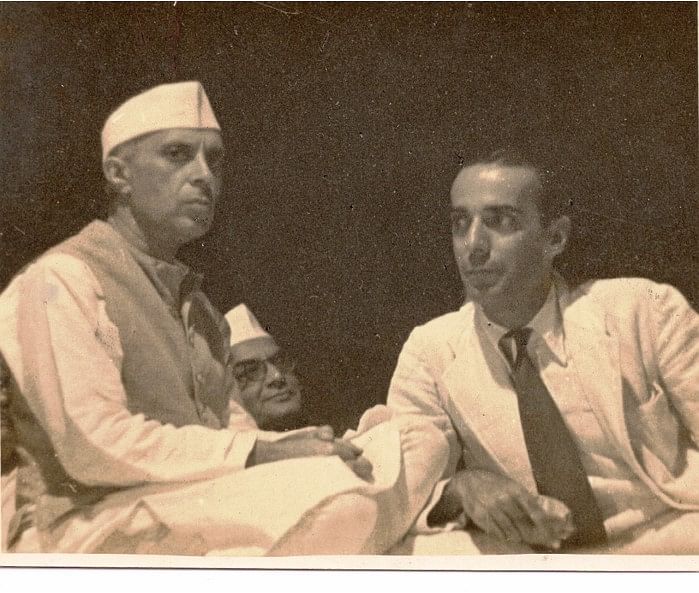
Also read: Remembering C. Rajagopalachari, independent India’s first and last Indian Governor General
By 1967, only eight years after its birth, Swatantra Party, thanks largely to Father’s remarkable organising abilities, had become the largest opposition bloc in the Lok Sabha, outstripping its rival, the Jana Sangh, forefather of the BJP.
Although Father got on well with the Jana Sangh’s very gentlemanly President Balraj Madhok, he considered Atal Bihari Vajpayee, much later our Prime Minister, a drunkard demagogue not to be trusted. The Jana Sangh reciprocated by constantly conspiring against Father in his constituency of Rajkot, now a BJP stronghold.
As a child, I recall watching a Lok Sabha debate when Nehru, with whom Father always maintained cordial relations, complimented him on his speech. Acharya Kripalani shouted out: “Why don’t you appoint Minoo to your cabinet?” Nehru replied with a tolerant smile: “Because then Minoo would stop me doing what I want, and I would do the same to him.”
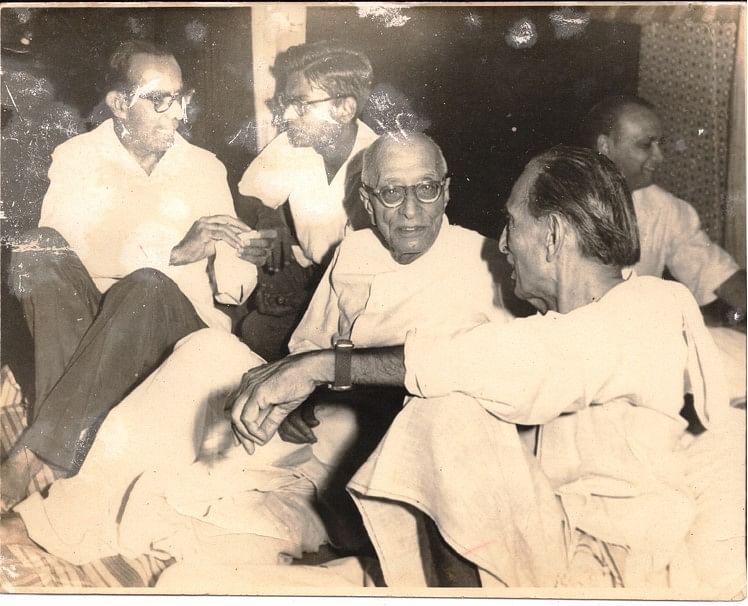
Father was effectively accorded the status of the leader of the opposition, though Swatantra was a few seats short of the necessary threshold. We were allotted a great big ministerial mansion at Tughlaq Road as his official residence.
Father’s role involved the far more demanding task of leading the official Lok Sabha debate on the annual Union Budget. He was a competent economist, trained under the legendary Harold Laski at the London School of Economics, and an even better debater, remarkably quick, articulate and incisive. His Budget speeches always made front page headlines in the newspapers, and he was also the most effective chairman ever of Parliament’s important Public Accounts Committee.
It was both Father’s strength and weakness that he was completely intolerant of indiscipline in the Swatantra Party. Amid the Aya Ram-Gaya Ram politics of the late 1960s, with opposition politicians wheeling and dealing to topple Congress state governments and form their own khichdi coalitions, Father stood out as virtually the only politician of integrity.
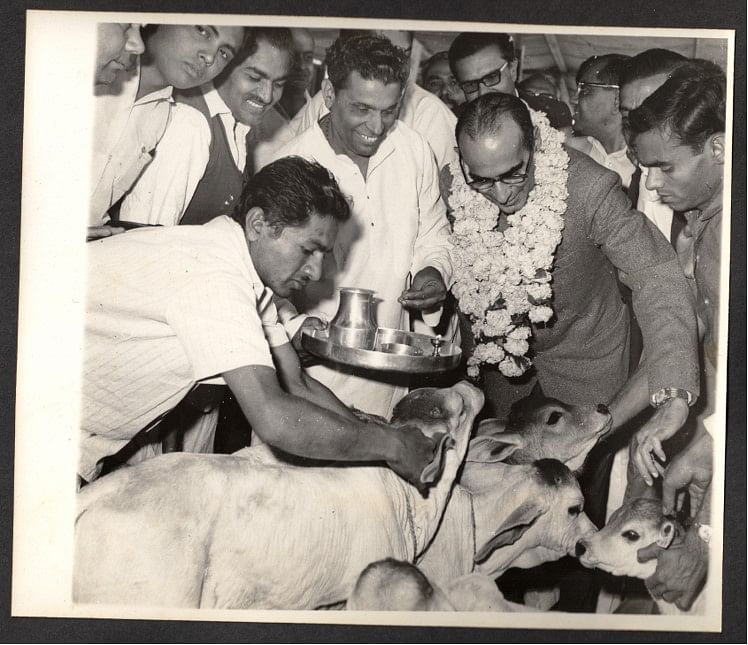
I remember his insistence on expelling Swatantra magnates who fell short of his standards, such as the fractious Raja of Ramgarh in Bihar and the corrupt, ex-Indian Civil Service officer C.C. Desai. I recall a cartoon by the famous R.K. Laxman, portraying Father in a black bund-gala showing the door to a scruffy C. C. Desai in jeans who was protesting: “But no one dresses like that anymore.” Father proudly had it framed and hung in his office.
Father often despaired about the glamorous Maharani of Jaipur – Gayatri Devi. “Ayesha,” as we called her, always preferred her social life as an intimate of the British royals to her duties as Swatantra Party’s lynchpin in Rajasthan. Although a charismatic politician, she had an unfortunate habit of disappearing off to England just when she was most needed back home. It illustrated Swatantra’s central dilemma as a party of urban businessmen and professionals depending on the rural, mass votes commanded by feudal elites.
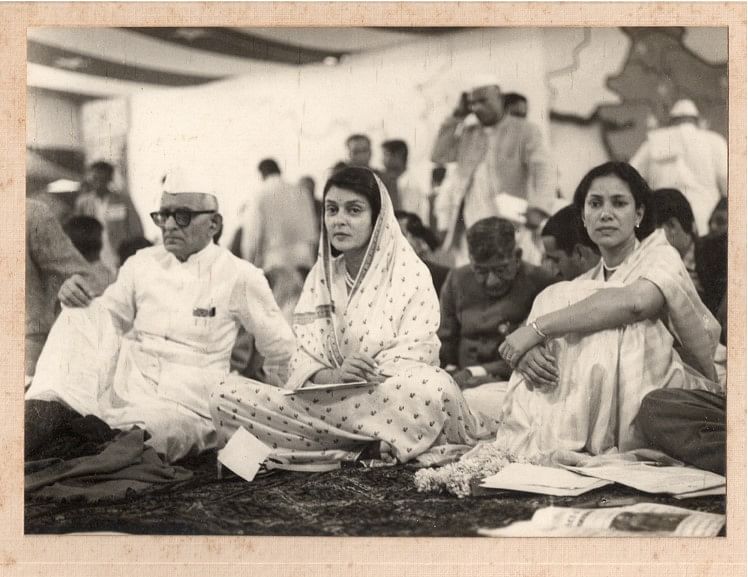
Swatantra’s contradictions came to a head with the Congress split of 1969 and Indira Gandhi’s Garibi Hatao campaign. The outcome was the opposition grand alliance, which included everyone from the Samyukta Socialist Party to the Jana Sangh and Congress (O) Syndicate bosses whom Indira had expelled. Father, then Swatantra president, was adamant that his party should stand aloof from such an opportunist coalition. He rightly predicted that the electorate would reject its sole recipe of “Indira Hatao”. But opportunism prevailed, and surprisingly it was Swatantra Party’s presiding deity, C. Rajagopalachari or Rajaji, who tilted the balance in favour of this motley alliance.
Father loyally acquiesced in Rajaji’s view and found no satisfaction in the electoral annihilation that followed. For the first time ever, he lost his own seat, thanks to Jana Sangh’s backstabbing.
Also read: 60 years ago, a Right liberal Swatantra Party had challenged Nehru’s socialist Raj
As party president, he accepted responsibility for Swatantra Party being routed and promptly resigned as the leader. He also urged the winding up of the remaining Swatantra rump, rightly predicting that it had no future as an appendage of the Jana Sangh and the Congress (O). Again, he and Rajaji disagreed, the latter favouring the party’s continuance.
Despite occasional disagreements of this sort, Father and Rajaji remained remarkably close friends throughout. Father often visited “the old fox”, as we affectionately called him, and they were genuinely fond of each other. Father, though never one to show his emotions, rushed to Rajaji’s side during his last illness, sat up through the night by his bedside as he lay dying and was there when he breathed his last.
Is it coincidental in the Hindutva-led India of today that Minoo Masani, the Westernised, beef-eating Parsi atheist has been airbrushed from our history while his close friend, the Brahmin Hindu, dhoti-clad Rajaji is still celebrated? I think not. I doubt if either of the two men, whose friendship transcended such differences, would have felt at home in a political world that has no place for secular, liberal, free-market values.
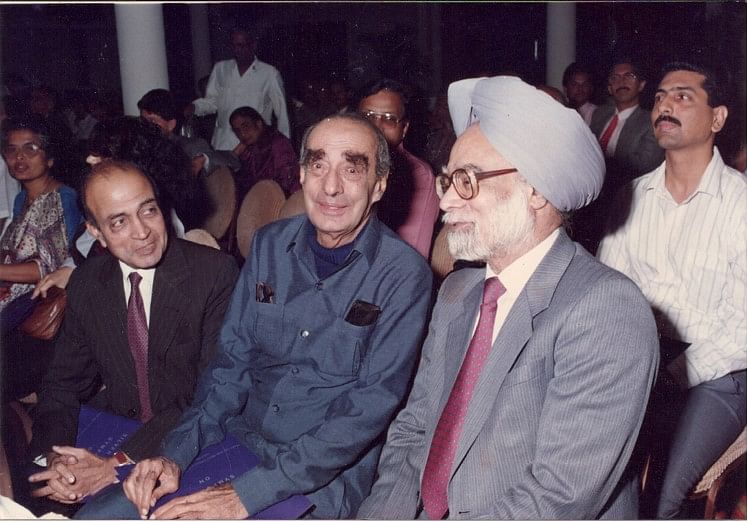
Although never the official policy of Swatantra Party, both Rajaji and Minoo Masani, along with his old friend, Jayaprakash Narayan, campaigned for peace with Pakistan, self-determination for Kashmir and Nagaland and the release of Sheikh Abdullah, the last goal proving unexpectedly successful at the end of Nehru’s life. It’s hard to imagine their liberal values being tolerated, let alone heeded, in India today.
The author has a doctorate in history from Oxford and is a historian and broadcaster, based in London and Bombay.


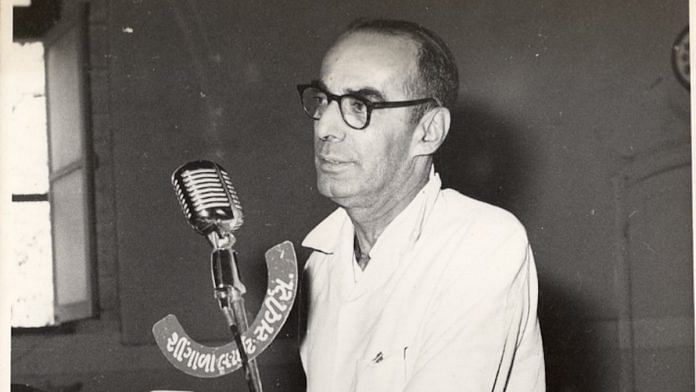

Unfortunately the offspring of the great Minoo Masani is living in denial. The memory of Rajaji and Minoo Masani has long been obliterated by past Congress governments, who had no place for anybody not belonging to the dynasty. The present regime has nothing to do with it. Secondly India never had a place for liberal, secular and free market values during any ruling dispensation. The present government is as anti free market as all Indian governments have been since 1947.
Some very interesting and important segment of political history of independent India. Truly nothing much is known about Minoo Masani to the present generation of Indians, although in my younger days in school and college, he was a prominent political figure. Particularly Odisha, my home state was ruled by Swarantra party with RM SinghDeo at the helm for several years. There is need for an unbiased historical account of independent India highlighting roles different political persona other than Nehru. All our history books are so partisan towards one narrative and one leader!
I think MrMinoo Masani was a giant of a man. Rare person of courage n integrity. Indian political and economic history has not given him his due. But I think MrZareer Masani gets it wrong in blaming the present political crop. It was the Congress that obliterated MrMasani’s memory and contribution. I dont think the BJP is promoting Rajaji’s memory either,and if indeed they are,then its easier to do as Rajaji is better known having been the last GG of India.Having said that,any fair historian who writes or records India post becoming a republic cant ignore the contribution that MrMasani made to the country. Or the values that he espoused and held. We now mostly have men of straw-Minoo Masani’s true nationalist breed is much needed in India today.